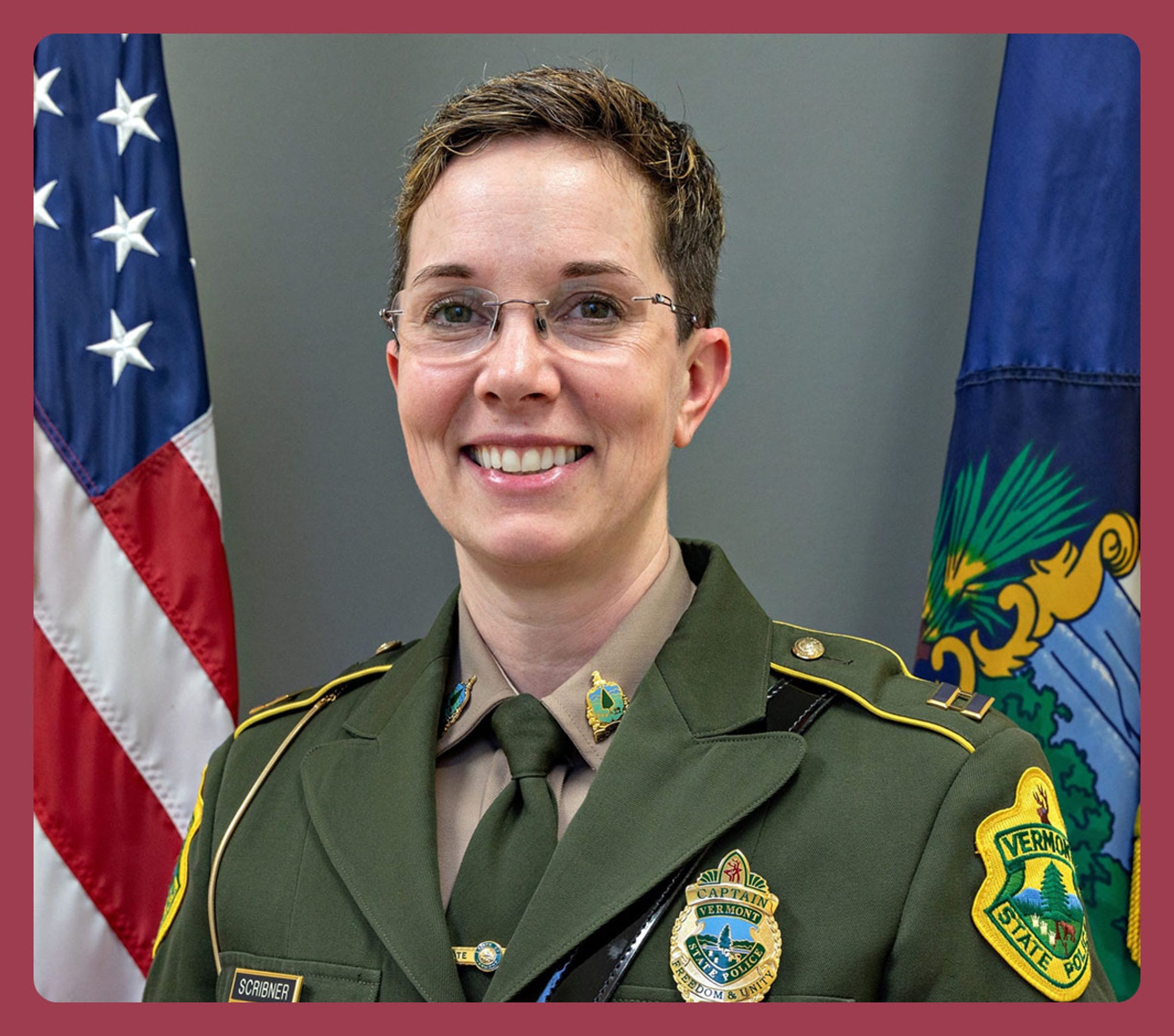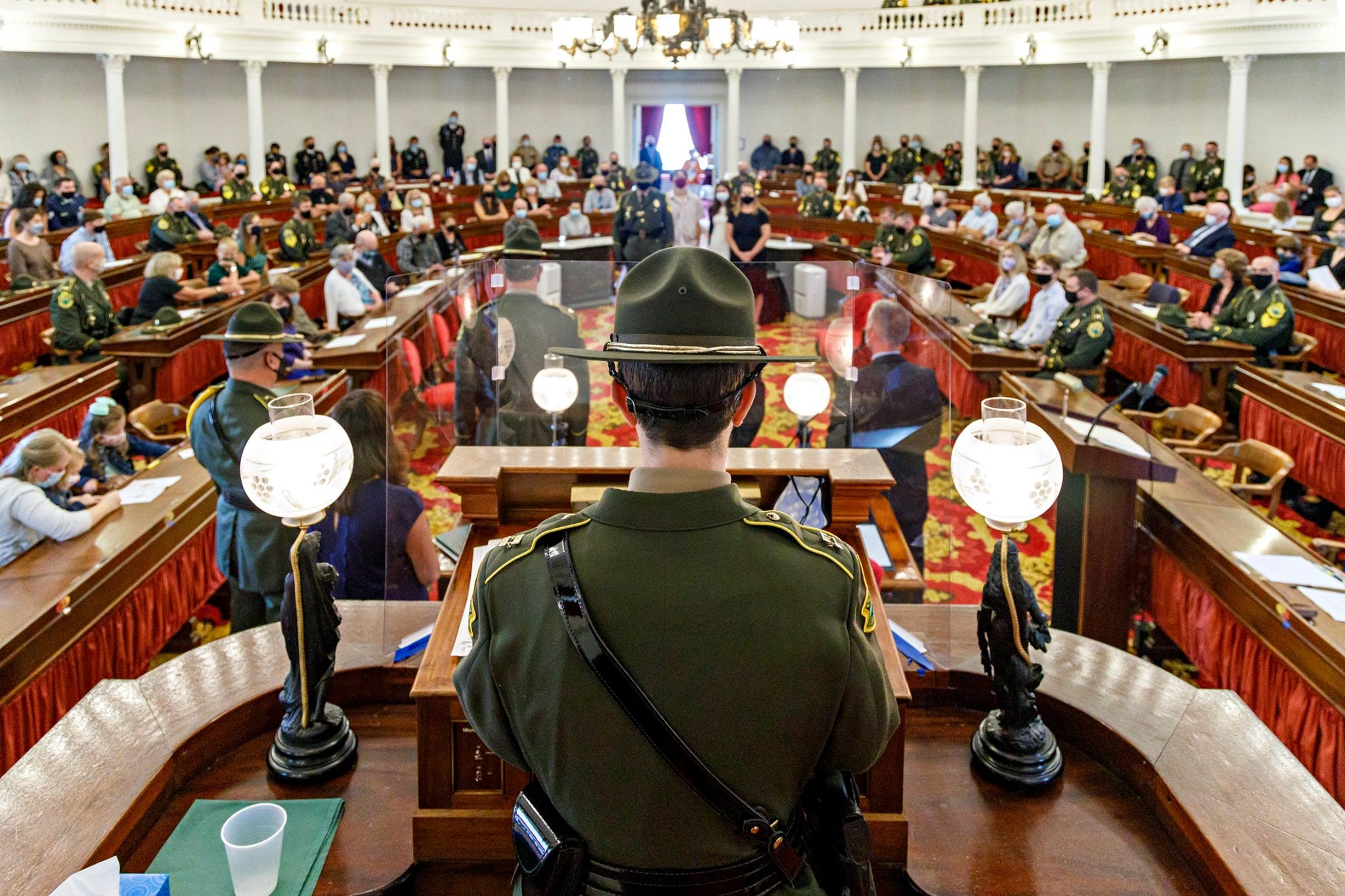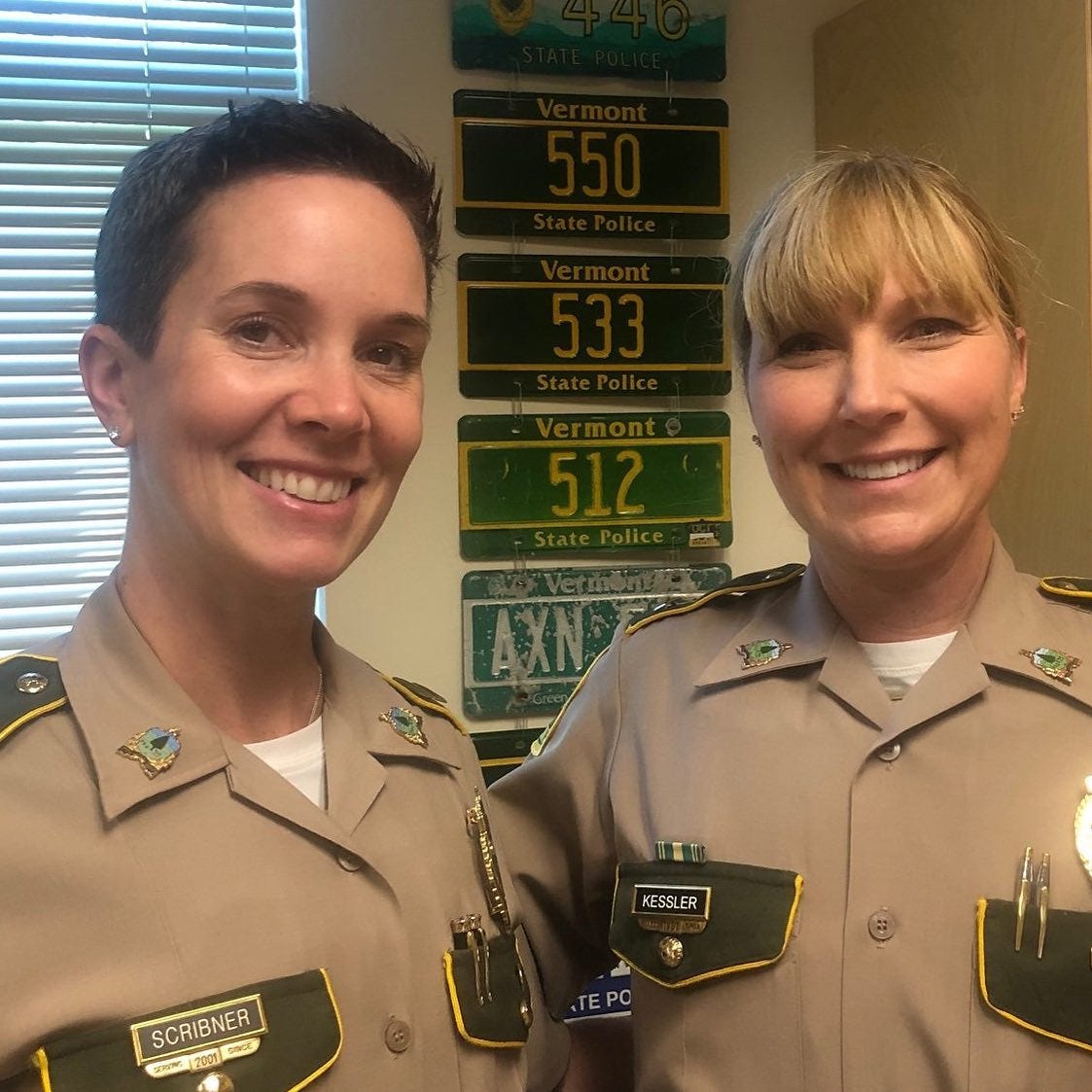
ADAM SILVERMAN, VERMONT STATE POLICE
ADAM SILVERMAN, VERMONT STATE POLICE
Julie Scribner is one of USA TODAY’s Women of the Year, a recognition of women across the country who have made a significant impact. The annual program is a continuation of Women of the Century, a 2020 project that commemorated the 100th anniversary of women gaining the right to vote. Meet this year’s honorees at womenoftheyear.usatoday.com.
At age 6, Julie Scribner was walking to a neighboring friend's house when a man pulled up, tried to coax her into his car and exposed himself to her. Scared and embarrassed to recount the event to a male police officer afterward, a seed was planted in her mind: there should be more women in law enforcement.
Over her 20-year career with the Vermont State Police, Scribner worked as a road trooper, homicide and child abuse detective, recruiter and trainer and Staff Operations Commander as she rose through the ranks to sergeant and captain (the second female to do so) before retiring in September 2021.
Scribner is being honored as the Vermont representative of USA TODAY’s Women of the Year for her contributions toward Vermont becoming the first to have its state police agency sign on to the 30 x 30 pledge, a national initiative to increase female police recruits to 30% by 2030.
As of early January, 133 departments across the nation had signed on to the 30 x 30 initiative including Burlington and South Burlington police departments, Vermont Fish and Wildlife, Vermont Department of Corrections and Vermont State Police.
While women make up about 50% of the population, Vermont has about 160 female offices in law enforcement, about 13% of the total.
A police department should reflect its community, she said. "It's about background diversity, ethnic diversity, gender, racial, sexual orientation diversity – that's what makes a community, and that's what makes a strong department."
A single mom with a high school diploma and a dream of helping people, Scribner wasn't sure she'd make the Vermont State Police in the first place. Her ex-husband took the kids to live with him in Oklahoma while she attended the police academy and once on the force she moved next to her mom so there was someone to watch the children during late-night or long shifts.
It was a challenge.
In her early career with the Vermont State Police, Scribner tried to prove herself to her male colleagues and minimize focusing on the differences (like police gear designed for men) in order to be known as a trooper, not a female trooper.
Scribner now works part-time at the Columbus Botanical Garden, utilizing her master's degree in public administration she attained with the state police's tuition assistance program.
“I see happy people and flowers every day. It’s fantastic. I’ve gone from one extreme to the other," she said. And while her title has shifted from captain to nana, her grandkids will know you can be a police officer and a woman.
This conversation has been edited for length and clarity.


Who paved the way for you?
Ingrid Jonas was one of the people who paved the way for me. She was the first female captain in the department, and I was the second female captain in the department. I think when you have somebody that’s the first, people wonder when is the second going to happen, when is the third going to happen.
I hope that women in Vermont continue to push to make it a normal thing, a standard thing. While I do want people recognized for their accomplishments, it shouldn’t have to be newsworthy when a female does something like that — gets promoted, or has a special assignment, or becomes the first woman on the tactical services unit. When will that stop being news? When will that just be ordinary?


What is your proudest moment? Do you have a lowest?
I would see women come in on their hiring panel interview – their quest to become a trooper. And, certainly they’re all super nervous, just as I was. But to see them at that interview, to know that they passed the interview, to see down the road that they get hired, then they graduate the academy, then to see them doing well in the job – that they are doing a good job and achieving their goals and seeing them get promoted. To me, that has been a huge thing.
One of my secondary assignments over the years was as a training assistant at the police academy. To see them get promoted, or to see them make detective – I think those were some of my proudest moments.
After high school, I went to Norwich University for one year. I was a little too interested in my social life than my academics that year so I was not asked to come back my sophomore year. To be able to finally get my degree from them, and it was 25 years from when I started, that felt like a huge personal accomplishment of mine.
I don’t know that there’s one particular lowest moment. There were some difficult cases: child victims, fatal car crashes, suicides. I know there are cases I wish I could have brought closure to for the families. One, in particular, was the homicide of Denise Hart in 2015 that is still an open case that the Major Crime Unit has. That was difficult to leave behind – the family is still waiting for closure on that.

What is your definition of courage?
Standing up for what you believe in and then taking action even when you’re afraid. I think some people think courage means being brave or not being afraid. I disagree with that, I think you can be afraid but still be courageous.

Is there a guiding principle or mantra you tell yourself?
I have a picture of it on my wall; it’s, "Be Kind, Be Brave, Be True." I found that poster when I was going through a significant personal challenge in 2015 and it just spoke everything to me. If you can be those three things, I think you can essentially be a Good Person. In my mind, Good and Person are capitalized.

When I was a trooper, especially before I was in administrative roles, I always – my mom will kill me if she hears this, but that’s OK – I used to try to tell myself to treat the people I was dealing with, so people I had arrested, to try to treat them like my mom would like to be treated if she was in this situation.
I wasn’t always successful at that.

How do you overcome adversity?
Allies. In law enforcement, it’s allies. It’s becoming allies with people in the community, learning about people in the community with different backgrounds and different cultures and even different challenges. I think as a woman in law enforcement having allies is important.
There’s a cartoon out there shows a bunch of people sitting at what looks to be a boardroom table. It’s all men in the room and one woman. And, the joke is something like ‘well, that’s an excellent suggestion, Julie, now if only one of the men in the room could make that.’ The first time I saw that I was like, ‘that’s so true.’


What advice would you give your younger self?
Go to bed early.
Contact reporter April Barton at abarton@freepressmedia.com or 802-660-1854. Follow her on Twitter @aprildbarton.
